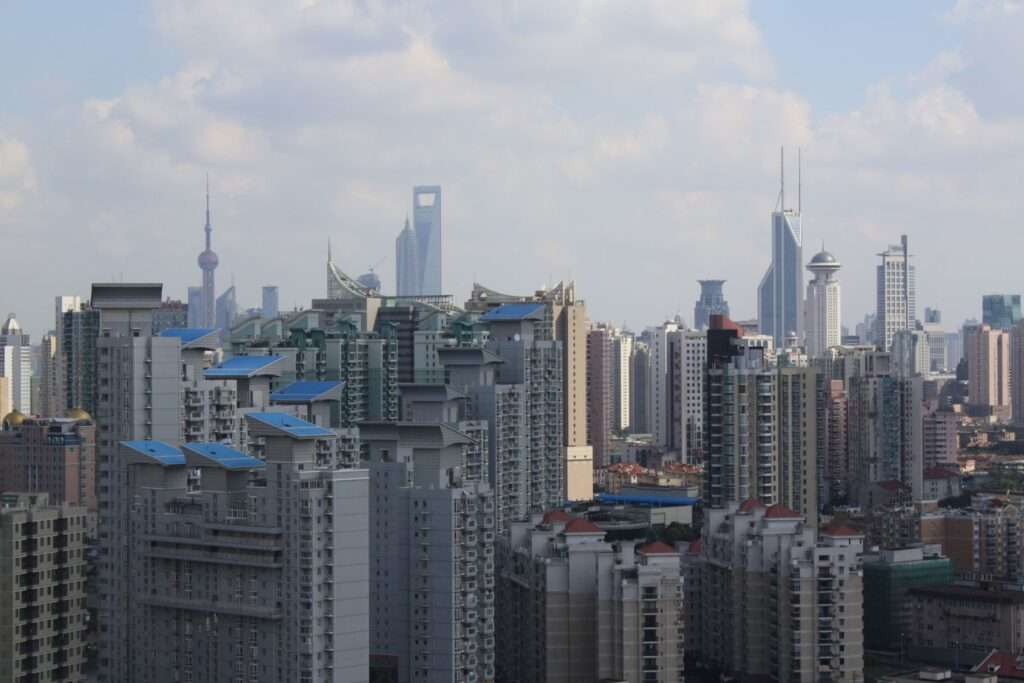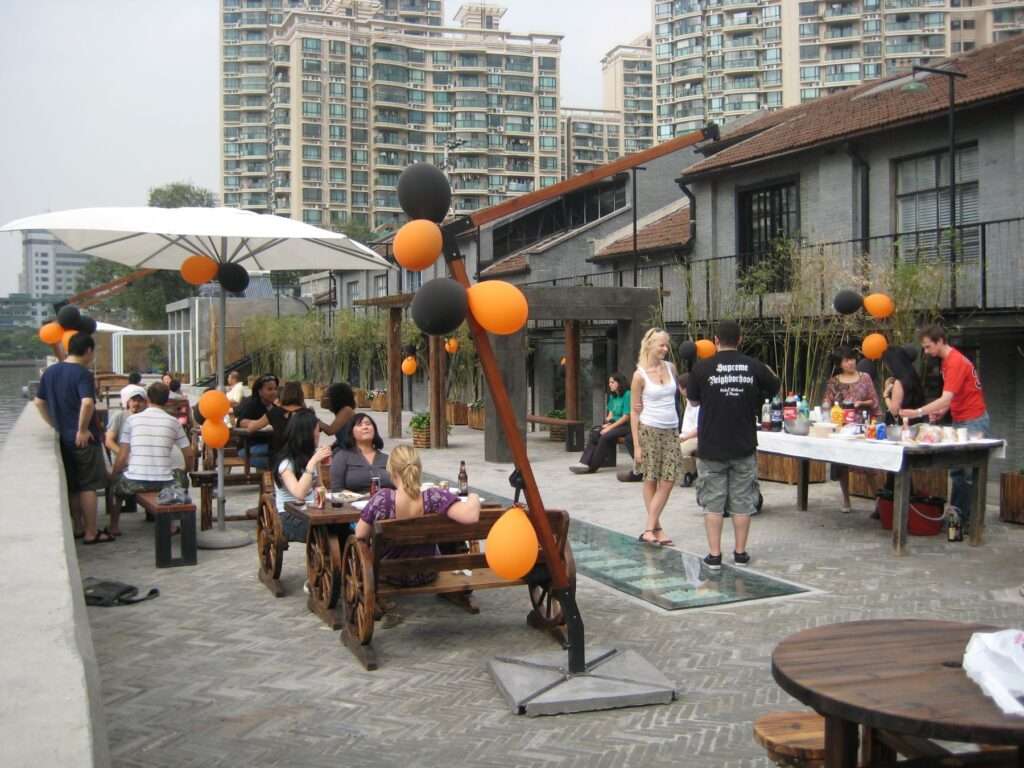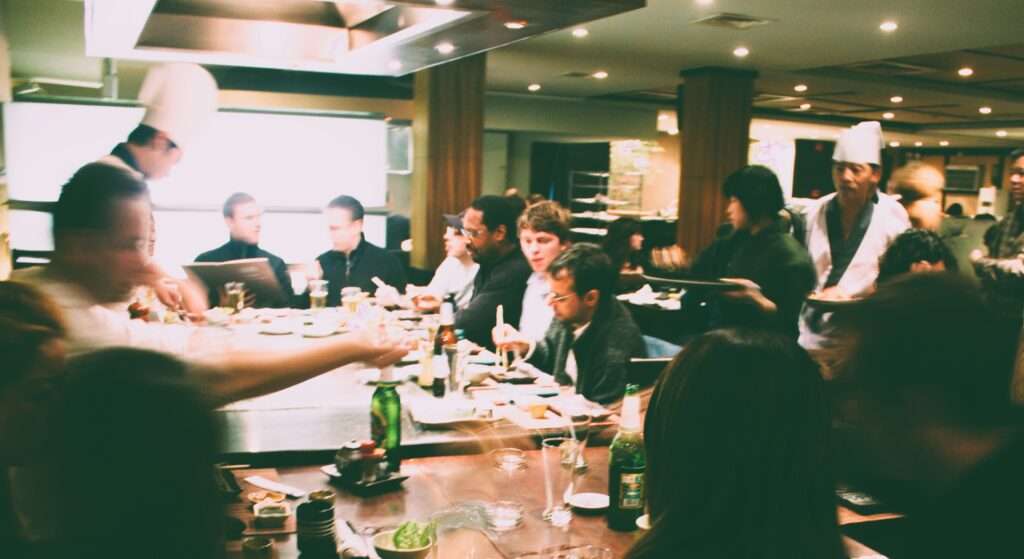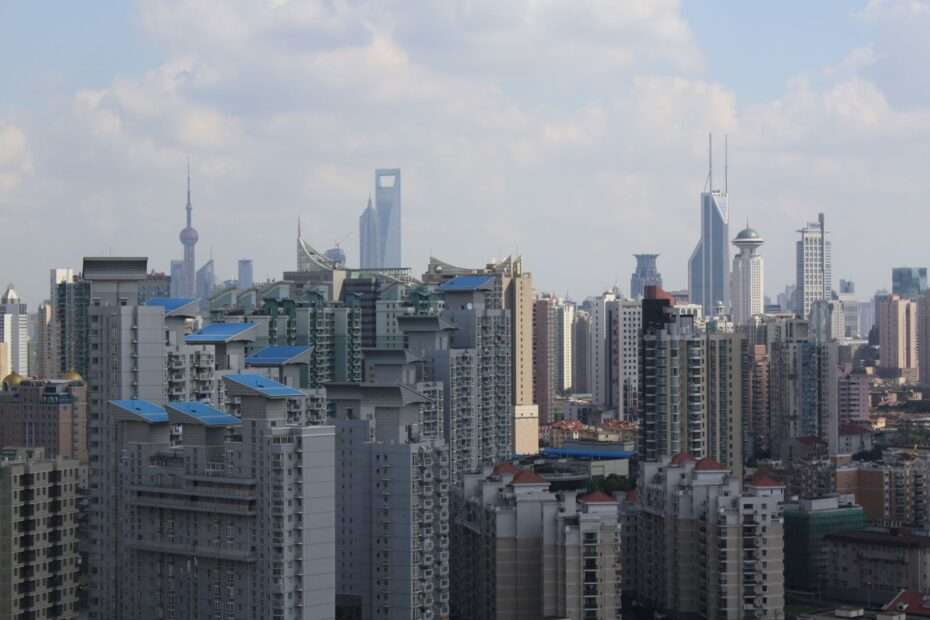Recently I’ve been to a Vipassana Retreat as a server – which means I was part of a group of short-term volunteers who helped run the course. As part of the kitchen team, I cooked, cleaned, and cut vegetables and got to know a diverse group of people from different countries, ages, struggles, histories, and much more.
As my ego formed opinions about each of them and prepared insights and lessons, the atmosphere and the – at least three – hours of meditation each day allowed me to look behind some of these judgments and my well-meaning advice. Each of those judgments taught me valuable lessons – about myself.
We were from different countries (China, Romania, Mexico, Turkey, and more) but mostly lived in Germany at the moment with varying degrees of long-term commitment:
First, my thoughts were about their connection to Germany, their level of integration, their homes here and elsewhere, the bureaucratic system, the categories, and their language skills.
Quickly, I realized my judgments – as so often – said more about myself than they said about the person I judged. I saw myself during my three years in China, my struggles and connection, and my understanding and misunderstanding of the country and the people. The difference between my own integration into the society there and the more than ten years in Spain, which followed, and coming back to a country that has changed but is supposed to be my “home.”
This article is about my integration or failure thereof in three countries: China, Spain, and Germany. It’s written from my often privileged perspective, which I try to be aware of and on which I hope to reflect critically.

Learning Mandarin
When I came to China, smartphones weren’t a thing yet. So my carefully curated box of business cards was a valuable possession as it allowed me to get around Shanghai. Later I got a flip phone that could display Chinese characters so people could text me the address. Back then, a basic understanding of the language was almost inevitable. I started with private classes, then had classes in the office.
To me, people who didn’t even put a bit of effort into some polite phrases, decent pronunciation of street names, and a general attitude of gratitude towards the people we shared the city with were appalling.
However, my Mandarin skills were never small talk ready – maybe the smallest talk – but it allowed me to travel.
Working in an office where the three languages primarily used were English, Mandarin, and German, I did learn and improve a language that wasn’t my mother tongue. It was English. During my Shanghai years, my English improved massively from “I had English at school” to thinking, writing, and living in English. This improvement opened many doors, but not the door to China.

The expat life
This brings me to the first limitation of not speaking the language: it created a filter of whom I could even be friends with—people who spoke English or German and were part of the expat bubble.
Expatriate – originally refers to a person who temporarily lives in another country and is often sent there by a company. This definition already implies that the expat has no interest in integrating.
For me, the name already reeks of privilege. Expats get a big salary, moving support, a person helping them in their household, decent health insurance and fancy hospitals, and all kinds of perks which allow them to live among the most privileged people in the country. In contrast, expats from Germany were probably just average back home – here they were rich.
My salary was 12.000 RMB, and a room in a shared apartment. With that, I qualified as a poor expat, but expat nevertheless. My face allowed me to enter fancy compounds (gated communities) without explaining why I went there or whom I knew. It allowed me into expensive bars, clubs, and restaurants I couldn’t afford.
I met many amazing people and dear friends during that time. People from everywhere, including China – I learned, grew, and expanded my understanding and appreciation of people, culture, and personal history as I learned that people are so much more than our lazy pictures and prejudices.
My first-generation German/ Greek friend brought along a Turkish friend, and I still recall how quietly shocked I was about my brain’s surprise that the Turkish guy didn’t speak German. How obviously stupid this thought was, which I never said out loud.
Despite all of that growth, I never really left the expat bubble.

The expat attitude
There were several kinds of expats. Some were just there for a limited amount of time and career reasons; some had brought along their families, and some were married to a Chinese person. Some expats weren’t interested in hanging out with people from other nationalities altogether, but the leading indicator for me was the attitude toward the people.
Some people enjoyed their expat privileges and had no interest in people and culture but were friendly; some people put some serious effort into mingling and getting in touch with people around them.
And then there were the nobs.
People who are either already rich and arrogant wherever they came from or people who didn’t know that many privileges before, and it brought out the worst in them. They were so condescending to people in the streets, restaurants, and taxis that it shaped where I would hang out and with whom massively. As a rule of thumb, that seems to be true everywhere, the more expensive the place/ richer the people, the more appealing the attitude, not only among expats.
I didn’t get it back in those days, but what I saw in those expats was a colonizer attitude. Treating people as less because they spoke the language of the country we were guests in and not ours is mindboggling.
Misunderstandings were bad enough; not even trying to understand the other person and then even treating them as stupid is just another level of arrogance when you are the one who doesn’t speak the local language.
Imagine using the English word for street plus pronouncing the name horrifically wrong, and then screaming at the taxi driver in English for not getting it and calling him all kinds of names.
The presumptuousness was disgusting, and despite speaking up against it, I fear that just by being part of the expat group, I became guilty too.

Why I left
One of the main reasons I decided to leave after three years was watching long-time expats in expat bars. They sat there drinking and complaining, occasionally shouting at the people behind the bar. They were both arrogant and frustrated, and how they talked about their chosen home was saddening. I simply didn’t want to become like them.
I saw, I felt how not being integrated, not integrating, being there but not belonging looked like. Even though they were most likely rich compared to the average salary, they looked lifeless – like ghosts. There but not really in touch with the place around them – unable to influence anything because they were so out of touch, unable to comprehend the life around them. In a way, I felt that I’d always be a visitor and that I wouldn’t want to grow old as that. I didn’t want to become a ghost too.
I also didn’t see how I could grow roots in a country where the people had taught me so much, but I understood so little. We didn’t grow closer. Neither me and the city, the country, nor the people, yet everything changed, including me.
What I wanted was a community and not one that changed each week as new people arrived and others went away. I wanted deep connections and life-long friendships, and trust. I wanted to understand what was going on around me, not just know my way around, not just my bubble, not just parties and bars.
So I left.
I left because of all these reasons and because I could.
Having a choice is probably the biggest privilege.
The second part of thoughts on integration: Spain
What are your thoughts? Share them directly with me!
